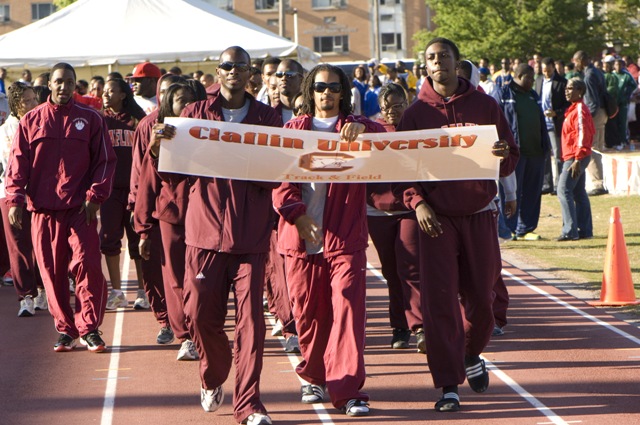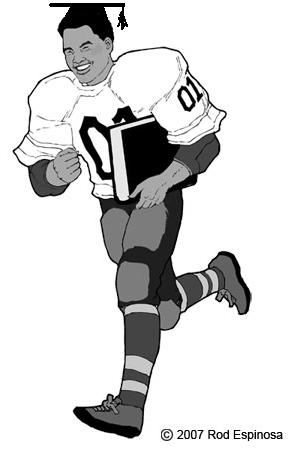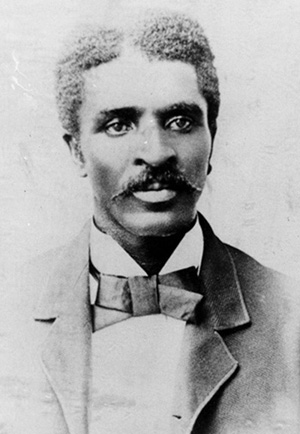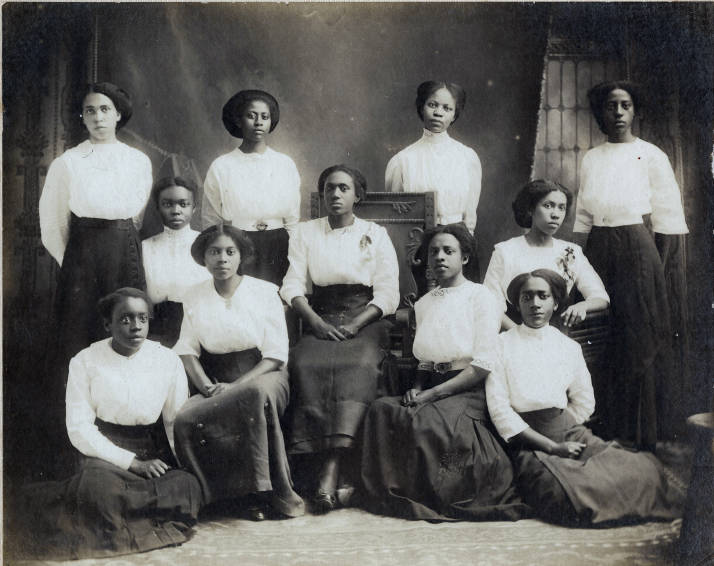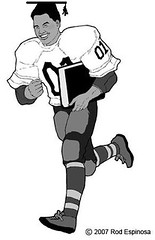
Backstory
Yesterday I wrote,
[A]s African and Afro-Caribbean students are becoming a greater and greater proportion of the Black student population on U.S. campuses, we may also be seeing the beginnings of a new kind of Black male college athlete, one whose excellence on the playing field is not counterbalanced by his or academic underpreformance. Instead, this scholar-athlete demonstrates the highest levels of achievement in both areas.
If you are new to the Black on Campus blog, you may wonder why an increasing proportion of African and Afro-Caribbean students on U.S. campuses might lead to a growing numbers of Black athletes who are also academic overachievers.
Actually, this is part of a larger trend that Black (and non-Black) scholars, pundits, and administrators have been observing and commenting on over the past two years. It seems that, overall, African and Afro-Caribbean students are outperforming U.S. Black students (American born descendants of enslaved U.S. Blacks) at all levels, and in all measures of academic performance, from GPA, to test scores, to degree acquisition and graduation rates. Indeed, if bachelor’s degree acquisition is any indication, immigrants from Africa are outperforming all other ethnic groups in this country. Indeed, African immigrants are the most highly education population in both the U.S. and Great Britain.
In fact, nationally syndicated columnist Clarence Page has gone as far as calling African students “the new model minority.” This problematic label is just one indicator of the growing awareness among educators, higher education administrators, and informed observers, of the intra-racial achievement gap that exist among Black people in the U.S. Along with a growing awareness of this phenomenon has come a growing concern about what some perceive as the displacement of African Americans (Black descendants of U.S. slaves) by their African and Afro-Caribbean peers. (Click HERE to read my blogpost on Clarence Page’s identification of African immigrants as the new “model minority”).
Much of the discussion around these issues was prompted by an article published a couple of years ago in the Harvard Crimson. This article pointed out that while “immigrants account for 26.7 percent of black students at [U.S.] universities,” at Ivy League institutions “the statistic reached 40.6 percent.” Indeed, in both Great Britain and the United States, African immigrants and the children of African immigrants are the most highly educated group in the country.
A Vision for the Future
In imagining that that the academic and athletic successes of Amobi Okoye and Myron Rolle might signal a new trend among Black athletes, I am assuming that the impact of increasing numbers of Black immigrants and the children of Black immigrants on college campuses will penetrate into all parts of college and university life, including NCAA athletics. I am also assuming that students who fall within these groups will continue to academically outperform other ethnic groups.
What the impact will be, and how widespread stands to be seen. One thing is certain, though. All things being equal, colleges will choose the academically strong athlete over the academically weak athlete every time. Greater numbers of Division I football players with academic profiles similar to Okoye and Rolle — Black students who certainly could have chosen Stanford, University of Chicago, the armed forces academies, or the Ivy League — would mean smaller numbers (even slightly smaller numbers) of Division I athletes whose academics were, shall we say, less sure.
So, what would happen if, in 5 or 10 years, there was considerably less room on Division I campuses for academically underperforming athletic standouts? Whither the truly gifted wide receiver or left tackle, power forward or point guard whose academic and/or family circumstances have simply not been conducive to achieving a record of strong high school grades and test scores?
Talented athletes — like talented musicians, visual artists, and dancers — deserve to have an opportunity to make a living at something at which they are highly skilled and about which they are passionate; and it is not fair for that opportunity to be tied to the ability to get accepted into a four-year college. I have encountered several dancers who, after retiring for professional careers that they began right out of high school, returned to college a little bit later in life. Why could this work for professional football and basketball players? The development of minor leagues would not only provide talented athletes with an opportunity to make a living using their greatest skills, even if they are not academically ready for or interested in college. While many professional sports hopefuls would continue to take the college route, minor leagues football and basketball programs could open up both the NFL and the NBA to an even broader base of talent than these leagues can currently access.
Posted by AJuan Mance

